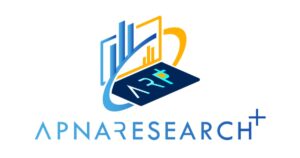The recent ‘Essential Payments Transformation’ report released by NIUM in August 2022 highlights the need for a ‘Global by Default’ approach to modern money movement. As part of the report, NIUM- the global platform for modern money movement- spoke to 172 business leaders and summarised that global businesses have unfortunately been relying on a fragmented patchwork of solutions to move money. 89% CEOs say that streamlining payments is key to competitive advantage. Modern money movement can help accelerate growth, maintain competitive advantage, and retain market share in the future.
The way the world works and moves money has changed irreversibly.
Hence, the highly fragmented global payments network is a hot C-suite discussion topic. Even though business has already become global, money is still controlled, regulated, and moved differently according to geography. Add to this, the risk of fraud, money laundering, and funding illegal activity means that global money movement is one of the most scrutinised activities a business can perform. Any institution must demonstrate compliance and accountability within these rules in each territory to be allowed to operate and move money.
To understand how severely the issue of money management is discussed in boardrooms, NIUM (a platform that holds licenses and authorisations in over 40 countries) spoke to 172 top business leaders and integrated their views into the ‘Essential Payments Transformation’ report. NIUM, a platform that businesses can connect to and pay out in more than 100 currencies to over 190 countries, operates in a very competitive market. There’s PayPal, Stripe and Payoneer on the one hand and other small business facilitators such as Freshbooks and Pleo.
The growth and adoption of such platforms arises from concerns on a broad range of issues relating to global payments when evaluating international expansion. While 78% CEOs are concerned about ineffective cyber security and fraud risks and/or checks, 73% are concerned about operational inefficiencies, and 70% are concerned about coordinating payments to contractors/vendors/customers across multiple countries.
The survey also showed that 45% of business leaders cited accelerating digital business as the top driver for business payment transformation, followed by growing revenue (44%), reducing cost (40%), and better compliance (40%) among other factors.
The report also highlights that 89% of businesses believe that streamlining payments to international independent contractors is essential to gain a competitive advantage. While 65% of businesses plan to build their own custom payment platforms, either by engaging an IT firm or by building internally (to increase the performance, agility, and efficiency of the business), 79% of businesses said that building and maintaining their own payment systems is burdensome. This contradiction is possibly the highlight of the report.
Summing up-
- To build a sustainable future and long-term success, business leaders today acknowledge the immense value of easy payments across borders.
- Most businesses rely on intermediaries to manage and control payment flows, which not only increases the cost of transactions but also decreases control and flexibility in payment.
- Managing local compliance and accountability is time-consuming, expensive, and highly specialised and best left to experts. Therefore, ‘easy payments across borders’ is the change every business is looking forward to.
- Businesses would like to be able to move capital quickly, easily, and safely—in any currency, using any payment method, to anyone across the world—while meeting all risk and compliance obligations.
At a time when every business cannot possibly build its own payment infrastructure , the most reliable way to adapt to modern money movement seems to be to engage with an established platform that can provide targeted expertise, support, and flexibility.






More Stories
Find The Trusted Financial Guide: Apna Research Plus Prioritises Investment Goals
YouStable: One-Stop Shop for Affordable & High-Performance Web Hosting in India
Exponential Growth: Sachin Dumpalwar’s Visionary Use of Facebook Ads & Funnels for Kavya Infoweb